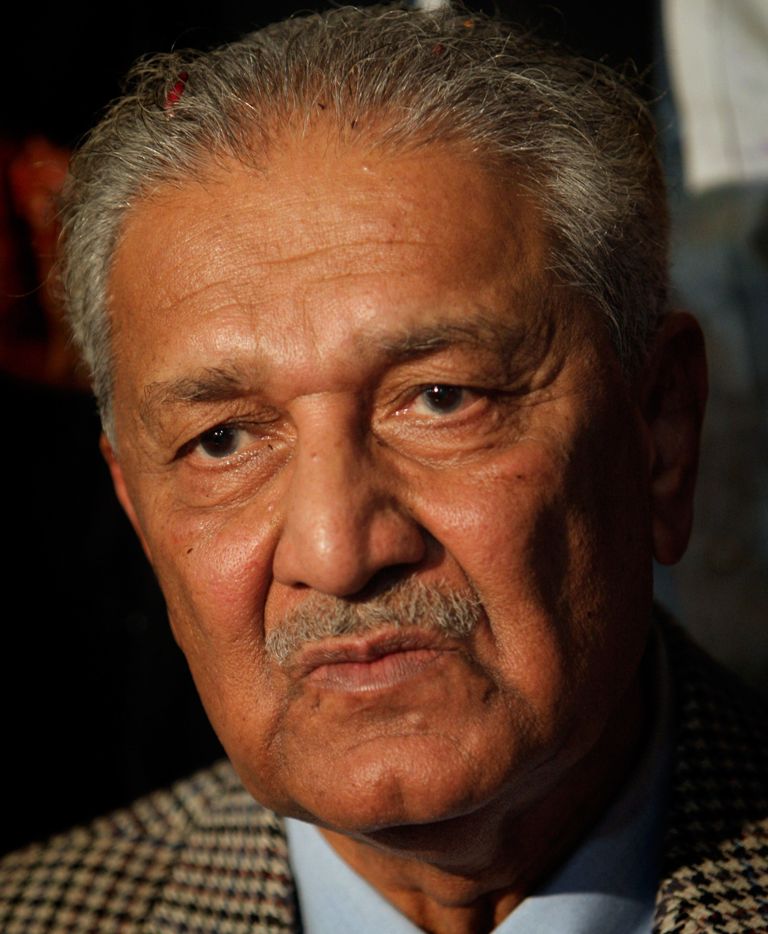
These views were expressed by noted nuclear scientist Dr Abdul Qadeer Khan at the concluding ceremony of a four-day workshop on tools and techniques in Biotechnology at the Dr AQ Khan Institute of Biotechnology and Genetic Engineering (KIBGE) at University of Karachi (KU).
Dr Khan said that young scholars, students and professionals must master advanced tools and techniques and share their knowledge with others so that they can also benefit from their skills and expertise. He added that the culture of research should be promoted and used to serve people rather be limited to simply publications of articles.
He advised the participants to work hard and gain excellence in equipment handling as it would play a major role in their success in the field. "Proper use of instruments plays a major role in producing the best results. Along with theory, hands-on training and eagerness to learn will help you all in achieving your dreams."
Dr Khan said that during his tenure at the Khan Research Laboratory, he learned how to operate different types of equipment and advised others to do the same.
"The KIBGE was initiated around 18 years ago and now it is recognised as a renowned institute around the world. All the trainees and students should apply what they have learned during this workshop and enhance their abilities to serve the country even better," said Dr Khan.
He regretted that people with higher professional degrees were jobless and unfortunately there were no plans to make use of their skills and abilities, though it was vital for a prosperous Pakistan.
Senator Abdul Haseeb Khan said that after a struggle of 13 years, he was able to get Thalassemia Act approved from the National Assembly. "I personally drafted the Bill in 2004 and sent it to the House in 2005, but the assembly members were not interested in even looking at it. When I become senator in 2009, I started a campaign again to get it passed, but the goal was achieved much later."
He said that it was disappointing to see that economics, education and health sectors were not performing well in the country for the past many years and added that there was no culture of research and development in Pakistan.
He said that industrialists and corporate sectors pay Rs7,000 billion to the government but never see corresponding investment in economics, education and health-related projects.
Prof Dr Anwar Ali Siddiqui of KIBGE said that the research should aim to improve society, rather than simply gain funding from the Higher Education Commission or other donors. He said, "The donor agencies are forcing scholars to focus on the impact factor due to which the standard of research has been compromised. Pakistani journals are increasing, but the impact of research on society is hardly visible."
One of the trainees from Bolan Medical College in Quetta, Dr Saima Erum, said that a large group of people in Balochistan were suffering from Thalassemia, but unfortunately there wasn't sufficient information or medical facilities to curb the disease. "I came here to attend this workshop so that I could be able to serve Thalassemia patients better. Thalassemia-free Balochistan is my dream and I will chase it my whole life," she said.
Published in The Express Tribune, December 18th, 2018.

















COMMENTS
Comments are moderated and generally will be posted if they are on-topic and not abusive.
For more information, please see our Comments FAQ